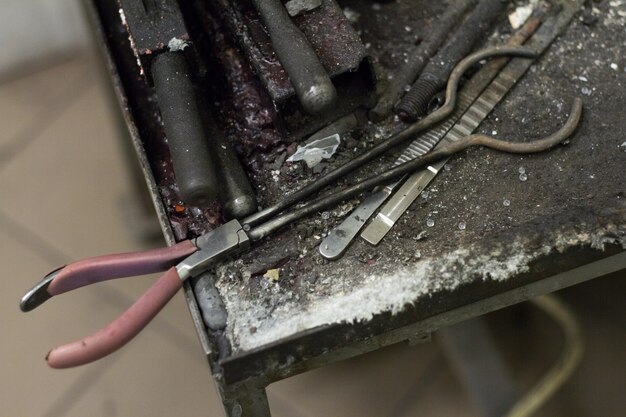The Complete Guide to Responsibly Disposing of Your Old Refrigerator
In today’s eco-conscious world, the act of disposing of an old refrigerator carries weight beyond freeing up space in your kitchen. With environmental regulations and sustainability efforts on the rise, finding a responsible and efficient way to dispose of an appliance like a refrigerator is crucial. Whether you’re upgrading to a more energy-efficient model or simply retiring a unit, understanding your disposal options ensures you’re contributing positively to the environment while complying with local guidelines.
Why Proper Disposal of Refrigerators Is Important
Environmental Impact
Old refrigerators contain substances like refrigerants and foam insulation, which can harm the environment. Refrigerants, such as CFCs and HFCs, contribute significantly to global warming and ozone layer depletion when released.
Legal Regulations
It’s often illegal to dispose of refrigerators improperly due to the hazardous substances they contain. Many regions have specific regulations requiring appliances to be recycled or processed at approved facilities.
Resource Recovery
Recycling refrigerators allows for the recovery of valuable materials like metals and plastics, reducing the need for virgin materials and conserving natural resources.
Approaches to Disposing of Your Refrigerator
1. Retailer or Manufacturer Take-Back Programs
Many appliance retailers or manufacturers offer take-back programs. When purchasing a new unit, inquire if the seller offers free hauling away of the old refrigerator. This service often ensures that the unit is disposed of properly.
2. Municipal Waste Management Services
Check with your local waste management authority to see if they provide special collection services for large appliances. Some may offer curbside pickup for a fee or have designated drop-off days for electronic waste.
3. Dedicated Recycling Facilities
Specialized recycling facilities handle large appliances and ensure the safe removal of harmful chemicals, along with the recycling of metals and other materials. Research local options to find certified centers.
4. Professional Junk Removal Services
Several companies specialize in removing large items, including refrigerators. This option can be convenient, though potentially costly. Confirm that they dispose of appliances responsibly.
5. Donation and Resale
If your refrigerator is still functional, consider selling or donating it. Many charitable organizations accept appliance donations, reselling them to raise funds or providing them to families in need. Always be upfront about the condition to ensure safety and usability.
Preparing Your Refrigerator for Disposal
Safety First
Before disposing of your refrigerator, ensure it is safely disconnected from the power source and water supply.
Necessary Steps
- Clean Out the Interior: Remove all items and clean the shelves and drawers.
- Remove Doors: Many disposal facilities require appliance doors to be removed to prevent accidents, especially when leaving an appliance on the curb.
- Defrost: If the appliance is still cold, defrost it to avoid water leakage during transportation.
Quick Preparation Checklist 🌟
- Unplug the refrigerator and disconnect from the water supply.
- Clear out all perishables and clean the interior.
- Remove or securely tape doors closed.
- Defrost if needed to prevent leaks.
Understanding the Recycling Process
Breakdown of Components
Recycling a refrigerator involves separating materials like metals, plastics, and hazardous chemicals. Each part is treated and recycled separately to maximize resource recovery.
Environmental Benefits
Every refrigerator recycled translates into fewer toxic emissions and reduced demand for new materials, contributing significantly to environmental conservation efforts.
Visual Insight into Recycling: 📊
| Component | Process | Environmental Impact |
|---|---|---|
| Metals | Melted and reused for manufacturing | Reduces mining and deforestation |
| Plastics | Reformed into new plastic products | Conserves petroleum |
| Insulation | Safely broken down to reduce pollutants | Limits ozone-depleting emissions |
| Refrigerants | Captured and neutralized or reused | Prevents greenhouse gas emissions |
Tips for Choosing the Right Disposal Method
- Be Eco-Conscious: Always prioritize recycling and eco-friendly methods where possible.
- Research Local Regulations: Understanding local laws can protect you from fines and promote eco-friendly practices.
- Consider Cost and Convenience: Balance the cost of disposal services with convenience and environmental benefits.
- Community Responsibility: Opt for donation or resale if the appliance is still in good condition.
Necessary Questions to Ask ❓
- Does this service ensure environmentally responsible disposal?
- Are there local laws I need to comply with?
- Is there an option for me to drop off the appliance to reduce costs?
- Can my old refrigerator benefit someone else?
Alternatives to Disposal
Energy-Efficient Upgrades
If you’re replacing your old fridge due to inefficiency, consider upgrading to an Energy Star-rated model. These appliances consume less energy, reducing your carbon footprint and utility bills over time.
Creative Reuse
Some creative minds repurpose old refrigerators for unique projects such as outdoor storage units, planters, or converted ice chests. While this wouldn’t eliminate the appliance, it provides utility and prevents it from reaching the landfill.
Fuel Your Imagination with These Ideas 🔄
- Storage Solution: Use your old fridge as a workshop or garage storage cabinet.
- Garden Planter: Convert into a mini greenhouse or a large planter.
- Art Installation: Turn the appliance into a quirky piece of yard art.
Key Takeaway Summary
- Disposal Methods: Prioritize manufacturer take-back, recycling facilities, or professional services. 🏆
- Environmental Care: Properly dispose to minimize pollution and maximize resource recovery. 🌍
- Regulatory Compliance: Understand and comply with local rules to avoid penalties. 📋
- Preparation Steps: Ensure safety by disconnecting, defrosting, and cleaning the appliance. 🔌
Choosing the best way to dispose of your old refrigerator doesn't just clear your space—it's a choice to act responsibly toward our planet. Every effort you make to recycle or repurpose an appliance can have a lasting environmental impact, paving the way for a cleaner, more sustainable future. By navigating through regulations, options, and creative alternatives, you actively contribute to a greener world, one appliance at a time.

